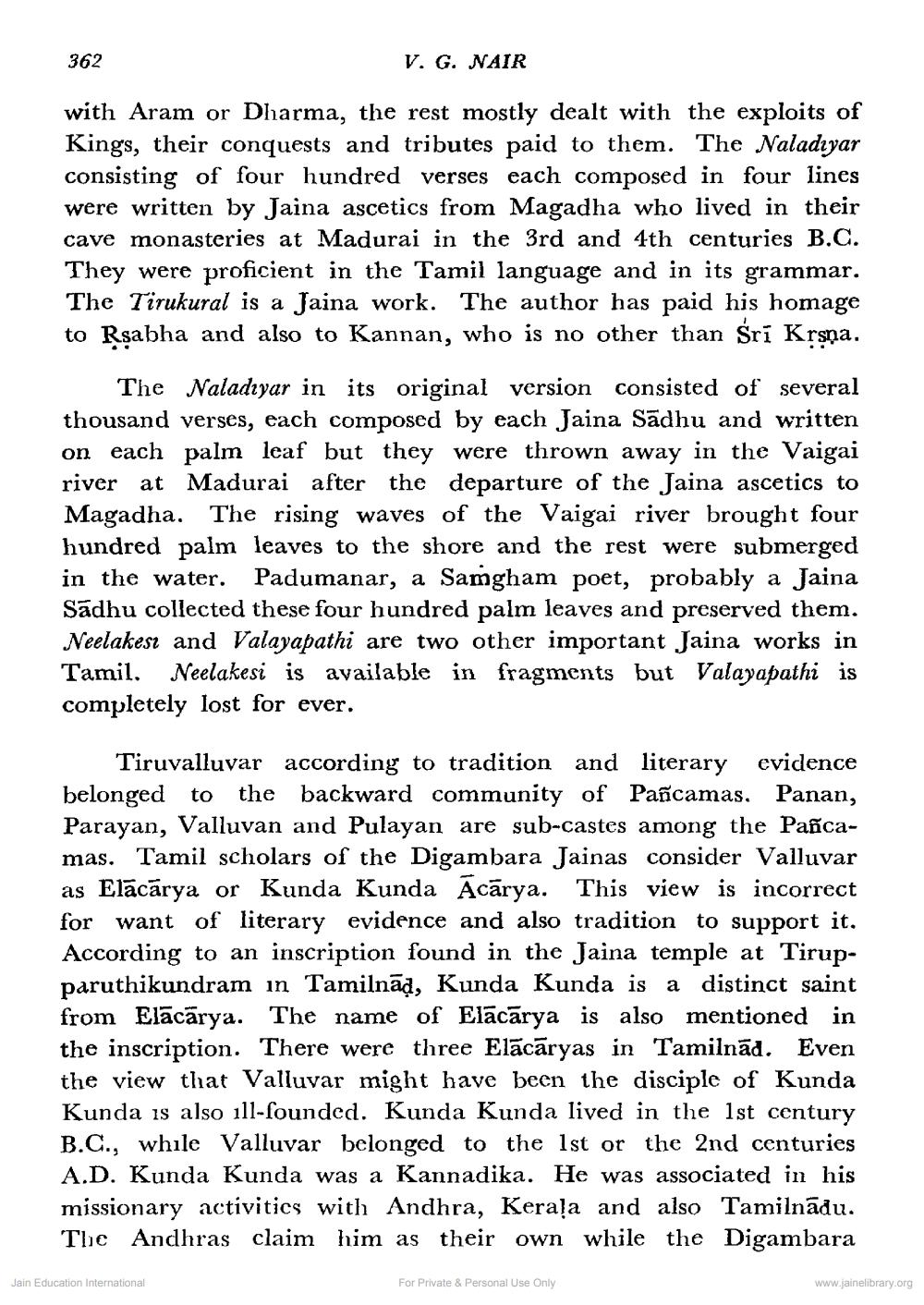________________
362
V. G. NAIR
with Aram or Dharma, the rest mostly dealt with the exploits of Kings, their conquests and tributes paid to them. The Naladıyar consisting of four hundred verses each composed in four lines were written by Jaina ascetics from Magadha who lived in their cave monasteries at Madurai in the 3rd and 4th centuries B.C. They were proficient in the Tamil language and in its grammar. The Tirukural is a Jaina work. The author has paid his homage to Rsabha and also to Kannan, who is no other than Sri Krşņa.
The Naladıyar in its original version consisted of several thousand verses, each composed by each Jaina Sadhu and written on each palm leaf but they were thrown away in the Vaigai river at Madurai after the departure of the Jaina ascetics to Magadha. The rising waves of the Vaigai river brought four hundred palm leaves to the shore and the rest were submerged in the water. Padumanar, a Samgham poet, probably a Jaina Sadhu collected these four hundred palm leaves and preserved them. Neelakesi and Valayapathi are two other important Jaina works in Tamil. Neelakesi is available in fragments but Valayapathi is completely lost for ever.
Tiruvalluvar according to tradition and literary evidence belonged to the backward community of Pañcamas. Panan, Parayan, Valluvan and Pulayan are sub-castes among the Pancamas. Tamil scholars of the Digambara Jainas consider Valluvar as Elācārya or Kunda Kunda Ācārya. This view is incorrect for want of literary evidence and also tradition to support it. According to an inscription found in the Jaina temple at Tirupparuthikundram in Tamilnād, Kunda Kunda is a distinct saint from Elācārya. The name of Elācārya is also mentioned in the inscription. There were three Elācāryas in Tamilnād. Even the view that Valluvar might have been the disciple of Kunda Kunda is also ill-founded. Kunda Kunda lived in the 1st century B.C., while Valluvar belonged to the 1st or the 2nd centuries A.D. Kunda Kunda was a Kannadika. He was associated in his missionary activities with Andhra, Keraļa and also Tamilnādu. The Andhras claim him as their own while the Digambara
Jain Education International
For Private & Personal Use Only
www.jainelibrary.org




